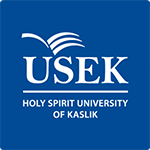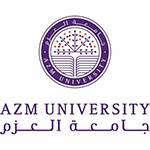Some Lebanese companies and organizations have already
passed the green light. Here are some examples:
|
- In April 2018, Lebanese American University students and environmental activists completed the maiden Sunday voyage of the country’s first ever Phoenician-style trireme made of thousands of plastic bottles, an initiative that organizers say is “bringing people together” to fight pollution. The project goes back at least five months, when LAU students, activists from the environmental NGO CHREEK and high school students across Lebanon began collecting used plastic water bottles to be used in constructing the boat. Built for Lebanon by the Lebanese, the trireme is an example of how Lebanese activists can fight pollution at the grassroots level.
|
| |

- Energy and Emissions: While the University
historically has relied heavily on nonrenewable fuels and we realize their negative
impacts on the environment. As a Catholic university, we strive to be responsible
stewards of the Earth and its resources. We strive to respect all the people with
whom we share the planet and to leave a legacy for generations far into the future.
In our endeavor to act as good stewards, the University intends to reduce its energy
consumption through conservation and efficiency and by switching from diesel private
energy generators into cleaner and renewable sources of energy, such as Photovoltaic
Solar Electric Arrays and solar water heating system. Although it is not economically
or operationally feasible to immediately discontinue all fuel use, we can strive
to lessen the negative impact of our energy use by reducing our energy demand, increasing
our energy efficiency, and increasing the percentage of our energy fueled by renewable
and sustainable energy sources. To this end, we have developed a number of energy
and emission strategies
- Waste: The University’s current
goals are to divert 50% of all waste by the end of 2017 and 95% by 2022; we should
continue to work toward these goals. Although the University has been actively combating
waste on a number of fronts, there is much opportunity for improvement, including
moving toward setting an informed goal
Improve campus-wide single-stream recycling:
- Increased single-stream recycling rate to approach
the overall University objectives
- Mapped and tracked current recycling signs and containers
in campus buildings and facilities
- Standardizing signage and containers for ease of use
- Conducted routine and standardized waste and recycling
audits in more specific areas
- Increased recycling and diversion at all events by
creating a data baseline, working on packaging and service ware options, and improving
messaging
- Tracked and reported single-stream diversion rates
by more specific type and user group
- Increased accountability and responsibility of all
campus divisions for measurable increased recycling, decreased waste production,
and decreased waste sourcing
- “Go Green, Before Green Goes”:
For many years the University has acted to inspire and encourage environmental sustainability,
both academically and administratively, through the implementation of hybrid petrol-electric
vehicles since 2010, energy conservation measures across facilities, the design
and construction of LEED-certified buildings like the Medical building, and the
establishment of the Office of Sustainability, academic and research centers
|
|
- Environmental
Club planted 300 trees in the last three years. 100 in Nabatiyeh, 100 in Kchag (Mansouriyeh),
and 100 in Anjar
- Environmental
Club distributed paper recycling bins to every office at Haigazian University
- Environmental
Club did several workshops to school students about the importance of upcycling
- We
cleaned the Jera7iyeh Refugee Camp in Al Marej area and raised awareness among its
habitats
- We
installed the RVM machine in collaboration with Atria on February 2016 and 5312
plastic bottles were recycled in March 2016
- We
participated in Earth Hour on March 19,2016 with Up-cycled items made from bottle
caps. Some of the items were: Lamp, chandelier, clock, trash can, key chains, curtain,
and purse. A total of 5000 bottle caps were used
|
|

- Using alternative energy sources (using photovoltaic
cells and using steam from power generation for heating). Recent installation of
photovoltaic cells on the roof of Bechtel and Science Research Building
- Improving the recycling program through installing
6 reverse vending machines and implementing the Red and Blue recycling program throughout
campus buildings
- Introducing electrical cars on campus and encouraging
the use of bicycles for commuting by installing bicycle racks across all AUB gates
- Installing energy efficient and water saving devices
and fixtures in new buildings and some existing buildings
- Installing high efficiency HVAC systems in many buildings
- Installing high efficiency lighting systems in all
new projects and use of LED lights
- Developing a strategy for “AUB towards zero
waste” through working on greening our purchases, operations and events and
improving our recycling infrastructure
- Installing Reverse osmosis units to reduce the purchase
of water tankers for domestic water use and use treated water for drinking to reduce
water bottles consumption
- Developed a guide on how to be a
Green Aubite
Learn More >
|
|
- Uses LED lights and projectors to reduce energy consumption during working hours, as well as motion sensor-equipped LED lights to reduce overall energy use
- Faculty members and staff are asked to turn off electronic devices, lights, and AC units to reduce power consumption during closing hours
- All standby generators are installed with Night Mode system
- Reduces paper consumption by printing on both sides
- Encourages students to carry out activities that promote environmental awareness among the community in general
Future Initiatives:
- Team up with Arcenciel for recycling efforts
- Conduct regular awareness campaigns among the university community about: reducing, reusing, and recycling
- Go paperless by consecutively introducing workflows on intranet to reduce paper use
- Minimize paper waste by installing automatic hand dryers
- Plant more spaces in the green area of the Sahel Alma campus
|
|

- For the newer buildings a lot of effort has being
done to save and build around the trees growing on campus wherever possible, and
replacing the ones lost to construction in green areas around campus
- Minimizing paper waste by installing automatic hand
dryers
- Installing environmentally friendly features including
but not limited to solar panels and using solar power in the new and in the existing
buildings
- Adding over 10,000 spm open green spaces to the Zahleh-Nabi
Ayla campus
- All hot water on our Zahleh campus is solar powered
- We are studying the possibility of installing solar
panels to cover all electricity needs for the Zahleh campus by 2017
- All exterior lights and projectors on the Zahleh campus
were replaced by LED lights in 2015
- Installing energy saving LED lights and projectors
throughout
- 80% of paper used in our Zahleh campus is recycled
- Starting massive recycling efforts on all three campuses
- Consistent and regular awareness campaigns around
Reducing, Recycling and Reusing on all three campuses
- Teaming up with Arcenciel for our recycling efforts
on all 3 campuses
|
|

- Installing energy- efficient lighting: Azm University
is a young academic institute with plans to grow in programs, facilities, and campus
area. The current building is fitted with energy efficient lamps and variable speed
drives for HVAC systems and water pumps. Same will be implemented in new buildings
- Integration of environment- related courses in the
undergraduate curricula
- Effective roof and walls insulation; being a modern
recently built structure, the current building has upgraded walls and roof insulations
that save on heating and cooling operations
- Reducing paper consumption by printing on both sides
- Recycling of papers and glass; a program has been
set to collect and send papers and glass for recycling
- Budget is allocated for students clubs to carry out
activities that promote environmental awareness amongst students and the community
in general
Future plans:
- Installing PV modules on the rooftop to generate clean
electricity, cut on the electricity bill, and reduce emissions from the standby
diesel generator
- The University is committed to match the national
and international standards of providing an average of 4m2 green area per student
in the expansion plan of the campus
- All the new buildings will match all the requirements
for the Green building labels
- Providing bicycles racks in the parking lot to encourage
cycling amongst students
- Conducting regular awareness campaigns amongst the
university community and the local community in general about the 3 Rs: Reduce,
Reuse, and Recycle
|
|

- “Sustainability” and “concern for
the common good” are among the core values rooted in the mission statement
of Notre Dame University-Louaize (NDU)
- In collaboration with specialized NDU faculty members
and eco-consultants, all on- and off-campus sustainable development, CSR, and green
awareness campaigns as well as conferences and student projects are aimed at encouraging
faculty members, staff, students, and NDU stakeholders to become even more environmentally
responsible
- Newly-constructed buildings and buildings in the final
stages of construction at the University are green buildings such as the Ramez G.
Chagoury Faculty of Architecture, Arts and Design, FAAD
- NDU formed a specialized Recycling Committee to deal
with Waste Management, and the University administration tasked this committee with
the responsibility of developing a strategy that would soon result in zero waste
- Recycling bins are distributed everywhere across all
three NDU campuses
- On-Campus Waste Management: collecting and sorting
materials, and delivering the waste to recycling specialists
- Internal Paper Recycling System
- Solar Heating Panels for NDU Student Dorms
- Using LED lights to reduce energy consumption during
working hours, and also using motion sensor-equipped LED lights to reduce overall
energy use and consumption
- Faculty members and staff are asked to turn off electronic
devices, lights, and AC units to reduce power consumption during closing hours
- All standby generators are installed with Night Mode
system, with the exception of one standby generator per zone
- NDU is in the process of going paperless by consecutively
introducing workflows on its intranet to reduce paper use
|